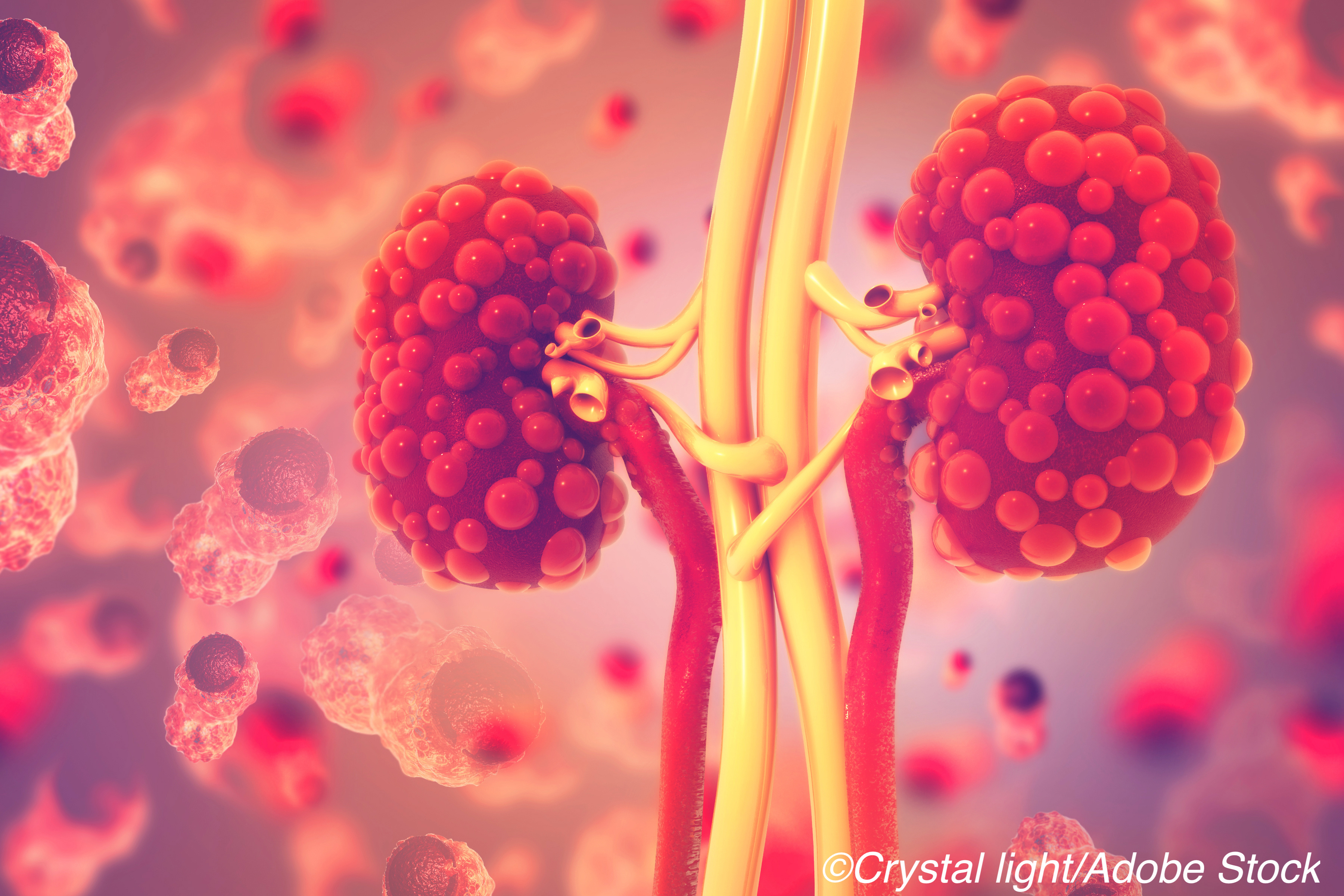
The use of allopurinol to treat patients with chronic kidney disease does not slow down progression of their disease, researchers found.
Specifically, researchers from Australia and New Zealand determined that urate-lowering treatment with allopurinol failed to slow the decline of the estimated glomerular filtration rate (eGFR) in patients with chronic kidney disease. Moreover, they did not find an association between the use of allopurinol and a greater decrease in proteinuria, blood pressure, or the risk of the composite kidney outcome of a decline in the eGFR, end-stage kidney disease, or death in these patients.
The study, by Sunil V. Badve, PhD, the George Institute for Global Health, Newtown, Australia, and colleagues, was published in The New England Journal of Medicine.
As pointed out by the study’s authors, elevated serum urate levels are associated with increased risks of onset and progression of chronic kidney disease and end-stage kidney disease. Here, in the CKD-FIX study, Badve and colleagues wanted to determine whether urate-lowering treatment with the xanthine oxidase inhibitor allopurinol could mitigate a decline of the estimated glomerular filtration rate (eGFR) — a standard test for determining kidney function — in patients with chronic kidney disease.
The randomized, double-blind, placebo-controlled trial was conducted at 31 centers across New Zealand and Australia and included adults with stage 3 or 4 chronic kidney disease and no history of gout who were at risk for disease progression (defined as a urinary albumin:creatinine ratio of 265 or higher [with albumin measured in milligrams and creatinine in grams]or a decrease in eGFR of at least 3.0 ml per minute per 1.73 m2 in the preceding 12 months).
The 369 patients eventually enrolled in the study were randomized to receive either allopurinol (185 patients) or placebo (184 patients). The primary outcome of trial was the change in the eGFR from baseline to 104 weeks.
The mean serum urate levels of both groups were 8.2±1.8 mg per deciliter at baseline. The mean serum urate level in the allopurinol group decreased to 5.1 mg per deciliter at 12 weeks and remained at 5.3 mg per deciliter for 104 weeks, while the mean serum urate level in the placebo group remained at 8.2 mg per deciliter for the duration of the follow up, thus accounting for a sustained mean reduction of 35% in serum urate levels in the allopurinol group.
Badve and colleagues determined that there was no significant change in eGFR in the allopurinol group (−3.33 ml per minute per 1.73 m2 per year [95% CI, −4.11 to −2.55]) compared with the placebo group (−3.23 ml per minute per 1.73 m2 per year [95% CI, −3.98 to −2.47]), thus resulting in a mean difference of −0.10 ml per minute per 1.73 m2 per year.
A secondary composite outcome of a 40% decrease in eGFR, end-stage kidney disease, or death by any cause occurred in 35% of patients in the allopurinol group and 28% of placebo patients (risk ratio, 1.23; 95% CI, 0.90 to 1.67; hazard ratio, 1.34; 95% CI, 0.92 to 1.93), with similar results seen in a composite outcome of a 30% decrease in the eGFR, end-stage kidney disease, or death by any cause.
The authors also found no significant differences in the urinary albumin:creatinine ratio or blood pressure between the 2 groups, while serious adverse events were comparable between the 2 groups (46% in the allopurinol group and 44% in the placebo group).
Badve and colleagues noted that their results were similar to those reported in the FEATHER and PERL trials and that they “do not appear to support the view that circulating urate levels play a causal role in the progression of chronic kidney disease.”
In an editorial accompanying the study, Daniel I. Feig, MD, PhD, MPH, University of Alabama School of Medicine, Birmingham, noted that the CKD-FIX and PERL trials both showed that treatment with allopurinol in CKD-FIX had no significant effect on the rate of GFR decline.
However, he also noted that the PERL trial did not address urate-lowering therapy in the case of younger patients, while the CKD-FIX trial did not do so in the case of patients with earlier stages of chronic kidney disease.
“As is often the conclusion in clinical research, more high-quality randomized, controlled trials are needed,” Feig concluded.
-
Urate-lowering treatment with allopurinol in patients with chronic kidney disease does not slow down progression of their disease.
-
Allopurinol failed to slow the decline of the estimated glomerular filtration rate (eGFR) in patients with chronic kidney disease. Moreover, it had no significant effect on proteinuria, blood pressure, or the risk of the composite kidney outcome of a decline in the eGFR, end-stage kidney disease, or death in these patients compared to placebo.
Michael Bassett, Contributing Writer, BreakingMED™
The CKD-FIX study was supported by grants from the National Health and Medical Research Council of Australia and the Health Research Council of New Zealand.
Badve reported consultant agreements with Amgen and Bayer Healthcare, and serving on a speakers’ bureau for Bayer Healthcare.
Feig had no disclosures.
Cat ID: 127
Topic ID: 81,127,730,12,187,127,411,192,669,918,925

